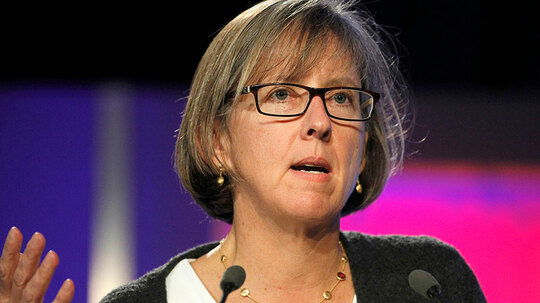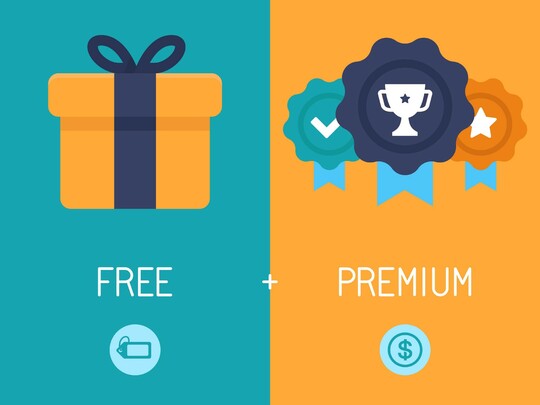Mary Meeker Says 'Freemium' Is The Future
Mary Meeker has just published her 2019 Internet Trends Report, and analysts all over the world are still digging through it to take away the parts that they can use and adapt for their businesses. In among all the statistics though - which included the revelation that for the first time in human history, there are now more people with access to the internet than without - there was a key point she drew attention to about the concept of 'freemium' marketing. A lot of people probably ignored it, because on the surface it sounded like she was talking about the popular 'Fortnite.' In reality, it might have been the single most crucial part of the whole report.
If you're not familiar with Mary Meeker or the work that she does, we'll explain briefly why she's worth listening to. Meeker has direct, front-line experience of working on the front line on Wall Street as a securities analyst. These days, she's a venture capitalist, partner at Kleiner Perkins Caufield & Byers, and focused on new technologies, with the internet being her primary interest. While she was working for Morgan Stanley, she worked on Google's first public listing. She successfully predicted the rise in stock value of Dell, AOL, Amazon, Microsoft, and eBay, long before anybody else realized what the internet was becoming. Forbes once listed her as being among the 100 most powerful women in the world. If you work in marketing or advertising, and you do business online, you should listen every time she speaks.
How Fortnite Highlights A New Digital Trend
Meeker was excited about all those now-massive technology companies before they made it big, because she could see the potential of the products they offer. She's now just as excited about the 'freemium' model of 'Fortnite' as she has been about anything else in the past. If you've been living under a rock for the past twelve months, 'Fortnite' is currently just about the most popular video game in the world. It has more than 250 million players - the majority of whom are young - and has become a pop culture sensation. Some people make their living through playing Fortnite live on YouTube or Twitch, and earning money through either donations or sponsorship.
There have been hugely-popular viral video games in the past, of course - 'Minecraft' to name just one - but where 'Fortnite' differs is that it allows communities to be built within the game, effectively creating a social network built around the product. Crucially - at entry point - all of this comes for free.
This is the 'freemium' model that Meeker talks of. Nobody has to pay to get involved in Fortnite. Anybody can register, log on, and start playing. Where it makes its money from is 'in-game purchases.' Players in Fortnite can pay a small fee to buy 'V-Bucks,' which are an in-game currency that can't be used outside of the game. With V-bucks, players can buy new outfits for their players, new 'celebration dances.' and new game modes. While this sounds trivial and silly, 'Fortnite' has been making $2m a day from these transactions. You can laugh at their business model, but they're laughing a lot harder. What's proven by this is that people will pay to get more of something they love - even if the 'something they love' initially came for free.
With so many users online at the same time and able to interact and speak to each other, the virtual world of Fortnite has become a destination venue for brands. Clothing manufacturers like Nike want to sell virtual outfits to players. Musicians want to come and play virtual concerts inside the game. All of this attracts money and publicity. The money and publicity draw in more players, and the cycle continues.
How Does This Relate To Marketing For You?
We realize that only a small number of people reading this are in the online games business. You probably don't have a product that you can give away to attract teenagers and young adults. You may not even want teenagers and young adults for customers. Despite that, the principles behind what makes Fortnite work are transferable.
With very few exceptions, everyone who has something to sell through advertising or marketing can give something away for free. It could be a limited trial of a product. It could be a perk for making a purchase. If you do this, you're already one step along the line to a 'freemium' model. Expand the idea. Could you give away a complete basic service for free, but make money for extra services, or additional products? How many more customers would you have if your basic service was free? Would that expanded customer base mean you'd make more money by selling directly to these new customers once they were already using your product?
While the idea of giving something valuable to a business away free of charge might seem like financial lunacy, we already see examples of it out in the real world, and especially on the internet. If you log onto any online casino website, you'll find that a substantial package of free bets and further incentives is on offer to all new players. Newcomers are invited to play casino games for free, and if they win any money from their free bets, they're generally allowed to keep it. If those players took the money and never came back, online slots companies would operate at a loss. That's not what happens though - once the customer is 'in,' they're inclined to start placing bets with their own money, and the 'gift' that the casino gave away pays for itself.
The idea can be taken a step further. Does your company, or the company you perform marketing for, have a message board or similar community area on your website? We imagine it doesn't. Such things were commonplace in the early days of the internet, but since Twitter and Facebook arrived, people no longer feel the need. You can interact with your customers on social media, so why should you need a separate message board? The answer to the question is that social media is public, and everyone can see it. A message board on your site is populated only by your users. If they can all talk to each other - and they get along - you've started building a community.
There's an obvious downside to this - there's the risk of spam and hate speech which comes along with any internet forum, and there's the risk of complaints being aired publicly. That's why you'd also want staff to be policing the boards for you. Providing a place for customers to talk to each other also has benefits, though. They can share feedback. They can assist each other on issues with your products, or provide advice. Before long, they'll start talking about life in general, too. That's when your message board becomes a daily visit for them, and the community starts to build.
Within that community, you can post your own messages, offering new services to people who came to you for free. You could even allow other companies selling connected products to approach them - for a fee, of course!
Community building and increasing your customer base is often worth more, in the long run, than a quick sale. Listen to Meeker. Think about Freemium. And then think about marketing your products in a new way.




